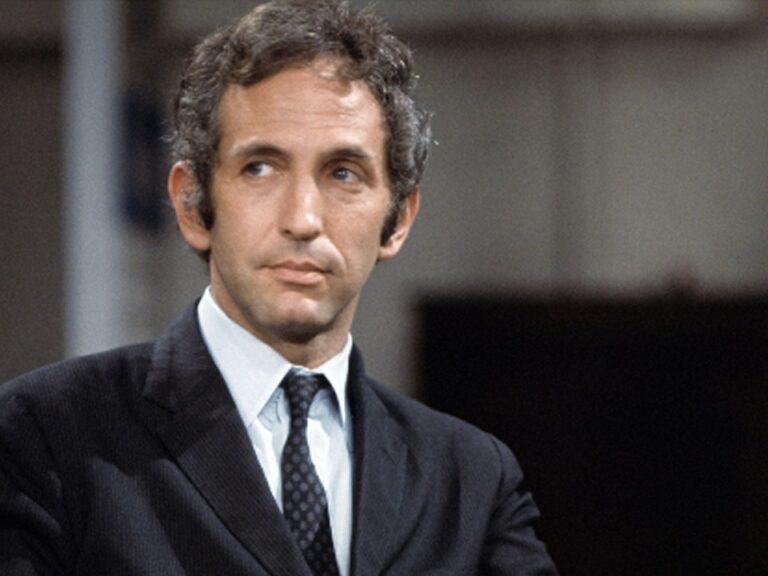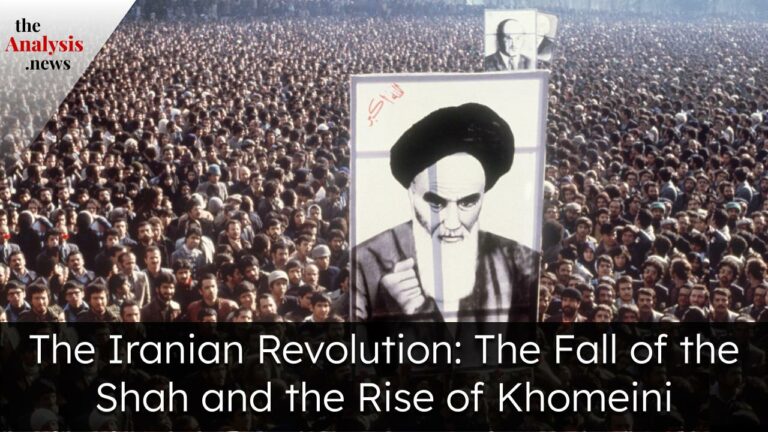In the final segment of Paul Jay’s interview with Vijay Prashad on Reality Asserts Itself, the subject is the undermining of international law and military interventions in the name of human rights. This is an episode of Reality Asserts Itself, produced August 11, 2013, with Paul Jay.
STORY TRANSCRIPT
PAUL JAY, SENIOR EDITOR, TRNN: Welcome back to The Real News Network. I’m Paul Jay in Baltimore. And welcome back to Reality Asserts Itself on The Real News Network.
We’re continuing our interview with Vijay Prashad. And you can find a full biography of Vijay somewhere down below the video player. But just to remind you quickly, Vijay is this year’s Edward Said Chair at American University at Beirut. He’s written many books. His most recent is The Poorer Nations: A Possible History of the Global South.
Thanks for joining us again.
VIJAY PRASHAD, PROF. INTERNATIONAL STUDIES, TRINITY COLLEGE: Pleasure. Thank you.
JAY: So the underlying issue here was the illegality of the Iraq War. Now, after President Obama got elected, there’s been a lot of focus, both to some extent from the Obama administration, but also from the media and various organizations, on the issue of torture. And, you know, yes, torture is a violation of international law as well. Yes, it’s a terrible thing. Yes, many terrible things were done. But, frankly, to my mind it pales in significance to hundreds of thousands of Iraqis who were killed in an illegal war. And we have very little focus on the issue of waging this illegal war. Far from it. President Obama, once he was president, started defending the war and started congratulating the troops and all the rest. I mean, his entire criticism of the Iraq War evaporated once he became president.
So, I mean, I guess maybe the question here is just where are we at in terms of international law? You know, you go from Nuremberg, where it seemed to be the beginning of a new way to think about international law, to the non-vote, when the United States wanted a vote, the Bush administration wanted the UN Security Council to endorse this invasion of Iraq, and they wouldn’t. You know, France said no and Russia said no and China said no. I believe Germany, they said no or abstain.
PRASHAD: Abstain.
JAY: But then the American government said, well, okay, well, we’re doing it anyway. And there were no repercussions.
PRASHAD: Well, I mean, international law is in a very poor situation. And it’s actually gotten worse, in a sense, since 2003 when the United States extended its war. I mean, the Iraq War begins in 1990. It never really ends. I mean, the whole sanctions regime is a form of warfare. The Clinton administration occasionally would send cruise missiles onto Iraqi soil. So the war never really ended. It was accelerated in 2003. It’s a separate matter.
But since 2003, things have got much worse. In fact, in the first term of the Obama administration, the Obama administration enshrined through pressure on the UN this idea of responsibility to protect, the R2P doctrine, you know, which means that if a sovereign state or if the United Nations sees a country somehow, you know, persecuting a minority, then the idea of that state having sovereignty over its territory is invalid and the United Nations can come in and act or a member state authorized by the United Nations can come in and act. So if in Libya the United Nations decides there is a situation where minorities are being, you know, acted upon in a bad way, either being killed or being persecuted in some way, the UN can come in and act.
You know, on the surface, in terms of common sense, this sounds like a good idea, that, you know, why should a state have the right to oppress its people. You know, let’s say Germany didn’t invade Austria, didn’t invade Czechoslovakia; it just oppressed Jews inside Germany. Why should Germany have the right to do that? It’s a perfectly commonsensical objection.
The problem with these new international laws like R2P, responsibility to protect, etc., is not the commonsensical idea of it; it’s who gets to determine which state is mistreating its population, who gets to determine which state is mistreating its population to such an extent that invasion is necessary to overthrow the regime, you know, and that everybody in the UN body, you know, recognizes this responsibility-to-protect doctrine is used extremely erratically on the surface. But, actually, it’s used with U.S. or Northern Atlantic countries’ interests in mind. You know, you attack and invade in Libya because you have interests that are transparent; at the same time, President Obama will be celebrating the birthday of the president of Equatorial Guinea, who also oppresses and brutalizes his people. So you pick and choose.
Now, you can’t have international law where it’s applied at a pick-and-choose mechanism. You know, if it’s law, if its the law of nations, it has to apply universally. And in this sense we now have laws where the adjudicator of the law has taken upon itself, in other words, the United States and its Western European allies have taken upon themselves the responsibility to become not only the legislators but also the executive and the judiciary. There is no separation of powers. You know, the International Criminal Court is used when it’s useful.
So at the start of the Libya war, the prosecutor there, Mr. Ocampo, framed warrants against Mr. Gaddafi, his son Saif al-Islam Gaddafi, against Abdullah Senussi. The war is over. Mr. Gaddafi is dead. His son Saif al-Islam is in captivity. Mr. Abdullah Senussi is in captivity in Libya. The ICC for two years has been fighting to have the warrants of arrest executed by a pro-Western government in Libya. And the NATO powers that helped, that used the ICC justification for their bombing raid, is helping block bringing these people to justice in The Hague. In other words, international law is useful when it’s to your advantage. When it’s not to your advantage, it’s jettisoned into the bin. This sets a terrible precedent for other countries. You know.
And I’m not saying that the United States should act, you know, honorably so that other countries will go by example. In many cases, other other countries act much more honorably. But the fact is, if the most powerful military in the world believes that its military force sets the terms of international law, why should anybody take international law seriously? This is a great disservice done to the legacy of the Nuremberg Charter.
JAY: And as much as the Americans have been the driving force in undermining international law for their own, I think, very narrow nationalist interest, Russia, China, Western Europe, too, I mean, France and others, you know, once the Iraq War was on, okay, they washed their hands of it. I mean, nobody called for any repercussions. You know, there was a certain stand made at that Security Council meeting in, I guess, 2003, I guess.
PRASHAD: Correct.
JAY: But after that, you know, they’re all back to making money, and this is the way it is.
PRASHAD: Well, it’s true that on the Iraq question there has been very little stomach for a retrospective investigation of what happened. But on Libya it’s a slightly different issue, because it is the case that many of the countries of the South, many of the BRICS countries, for instance, have been asking in the UN Security Council for an investigation of UN Resolution 1973, which authorized military force in Libya. You know, they have been asking for an investigation and in fact have authorized the UN to conduct an investigation. So the UN begins to do its investigation, and NATO sends the United Nations. Now, NATO acted in Libya following a UN resolution and constantly reiterated the fact that we are just operating under the terms of UN Resolution 1973. When the UN then asked for an investigation of civilian casualty deaths as a result of NATO’s bombing, NATO sent–NATO headquarters in Brussels sent a letter to the UN, saying, we have conducted our own investigation; we have not committed any, you know, war crimes or any crimes, so we don’t need to share anything with you.
JAY: Well, it’s clear that they completely violated the resolution. I mean, they didn’t just defend Benghazi. They started bombing on Gaddafi’s head and killed many, many Libyans in the course of it. But I do want to just add again this point. Well, of course the Americans and the French and the British and the Canadians are by far the primary villains of this piece. The Russians, you know, gave up on it. Like, half–it wasn’t, you know, halfway into this Libyan war where Obama meets Medvedev in Europe, and Medvedev comes out and says, oh, it’s time for Gaddafi to leave. And later it turns out Russia keeps its oil deal that it had through Eni. So, I mean–.
PRASHAD: No, Russia is not playing with a clean hand here.
JAY: They’re playing the same hand.
PRASHAD: Yeah, because they have the oil company. Gazprom has interests. They have a dirty hand.
But also remember the Russians have an ongoing war in Chechnya, and much of what the United States has been doing in its war on terror has retroactively justified Russia’s war in Chechnya. So, you know, from naked self-interest, these countries have now–I mean, they are jumping up and down in glee because they can win on both sides. On the one hand, they can stand out and self-righteously criticize the United States, saying, you have black sites, you have tortured, you have this, you have that, while on the other hand, they can then retroactively justify their terrible war that they conducted, and actually in a slow way continue to conduct, in Chechnya, Dagestan, etc. So they don’t have clean hands either.
The issue is that these countries, none of them have a high moral ground. It begs the question of why, then, should the UN Security Council, if none of these permanent members have clean hands, have a high moral ground, why should these countries in the UN Security Council have the white-carded veto?
JAY: Okay. So let me give the counterargument. What do you do in a situation where, say, it’s like a Mobutu or somebody in the Congo? What do you do when you have a situation where a regime–and more than likely a regime put in power in the first place through U.S. policy, ’cause they put so many crazy people in power, particularly in Africa, but not only. But the legacy of the Cold War was horrible situations in certain countries. What do you do when a regime is in fact conducting genocide within its own borders? Is there a point?
PRASHAD: Absolutely. I mean, there is no question that you stand back at the border and watch a regime kill its people, no question, you have to act. In the same way as international law enjoins people if they see their government doing something, you know, that is illegal, a war crime, they must speak out, in the same way there is an obligation on the international community to act.
The question is: what does the international community–as it stands now, when the UN says all member states must act to prevent a genocide in Benghazi, what they should actually have written in their resolution is NATO should act. I mean, what we need to do now is to strengthen regional institutions. You know, the African Union has been deliberately starved and sidelined.
JAY: Which means–but just in case people mistake what you’re saying, you’re saying it shouldn’t have been NATO. If there is going to be any intervention, it should be by regional forces.
PRASHAD: Absolutely, because people have to live side-by-side. You know, NATO–.
JAY: But in the Libyan situation, Qatar, if they could, and, you know, might have been more than happy to do that, you know, get–hire a Pakistani army and invade Libya.
PRASHAD: Well, but Qatar doesn’t have to live directly with the, you know, catastrophe that comes right after the regime falls. I mean, Libya is in catastrophe. We needed the Algerians, we needed the Tunisians, we needed the Egyptians, you know, the actual regional partners that have to live through the consequences of their intervention, you know, and therefore have to strengthen the will–.
I’ll give you another example. In the 1990s, there was a group formed in Central Asia called the Shanghai Cooperative Organization. The principal reason why the Central Asian countries Russia, China (later, India joins as a member state) joined this organization is they all had a common interest in dealing with the Taliban. They wanted to get rid of the Taliban. But if they had acted, rather than a U.S. occupation, they would have all as regional, as neighboring partners had a stake in the future of Afghanistan. You know, the United States doesn’t have a stake in the future of Afghanistan. You can pull troops out in 2014, and you go back home. Next there’s a convulsion in Afghanistan. It affects Central Asia, those–you know, Kazakhstan, Tajikistan. It affects Pakistan. It affects Iran. It affects India. You know, regional countries need to involve themselves.
That is why we are at the point now where the United States’ self-anointed role as the global policeman, using NATO, essentially, as the force, that needs to go. We need to build up robust regional organizations, you know, which adhere to international law and operate at a minimum standard not to come in and occupy places, but to come in, to act against atrocities and create a political space for a negotiation.
In Syria, for instance, you know, an amazing thing occurred a year ago in the Syrian conflict when four countries that would never sit together, never come into the room together–Turkey, Saudi Arabia, Iran, and Egypt–formed the Syria Contact Group. You know, it was a small opening. These countries have approximate reason to help deal with the Syrian conflict. They were all, for one, involved in it. They were embroiled in it. If they were allowed to be the central focus, to help open political space in Syria, it would have been more effective.
Meanwhile, what the Russians and Americans did was they said, look, this Syrian contact group, it’s just utopian. It’s baloney. It’s not going to happen. You never going to meet. And they said, we’re going to meet in Madrid, and that’s going to be the focus. All eyes should focus on the American-Russian meeting in Madrid. It’s not about the regional partners.
That has to end. We have to build, you know, robust regional organizations.
JAY: Which partly means Americans need to tell their government to stay the hell out of these things.
PRASHAD: Exactly. And these regional organizations have to learn to operate under the strict scrutiny of international law, you know, which has to be the basis of regional intervention, not whimsy, not we don’t like this person, etc. It has to be strictly on the principles of international law.
JAY: Okay. That will be a challenge, too. But at least if it’s regional, as you say, they have to suffer more the consequences of their decisions, ’cause we don’t want to create some kind of illusion about who these regional governments are.
PRASHAD: Not at all.
JAY: ‘Cause they don’t have–I mean, if they could be the big superpower and kick everybody’s ass, they would.
PRASHAD: Absolutely. I mean, if you just take the Syrian conflict again, one in six people who live in Lebanon is a Syrian refugee. It may be one in four in Jordan. You know, these countries suffer the consequences of cataclysm in their neighborhood. They need to have a direct involvement in the discussion. It cannot be the Americans and the Russians adjudicating something that’s happening on the ground. You need the Saudis at the table. You need the Iranians at the table. If they’re not there, nothing is going to happen.
For Afghanistan, it’s not about the Americans meeting the Taliban in Doha with the Karzai government. You need the Indians there. You need the Pakistanis there. You need the Iranians there. You know, these are the major stakeholders. These are people who have contradictory interests in Afghanistan. They need to create not agreement but a modus vivendi. You know, the Indians and Pakistanis have to agree not to use Afghanistan as a space for their conflict.
JAY: And the only way this happens is if the Americans are willing to let go of some of their global power.
PRASHAD: Absolutely.
JAY: Okay. Thanks very much for joining us.
We’re going to continue a series of interviews with Vijay on The Real News. He’s going back to Beirut soon. He’s going to be talking to us about the Middle East. And we’re going to talk more big-picture stuff. But for now, that concludes this series of interviews with Vijay on Reality Asserts Itself on The Real News Network.
Thanks very much, Vijay.
PRASHAD: Pleasure.
JAY: And thank you for joining us.






